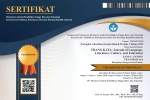Publication Ethics
TRANS-KATA: Journal of Language, Literature, Culture, and Education is an electronic journal that follows a rigorous peer-review process. The journal upholds a set of ethical guidelines for all parties involved in the publication process, including authors, chief editors, editorial boards, peer reviewers, and publishers. Unethical behavior, particularly plagiarism in any form, is strictly prohibited and not tolerated by the journal.
Responsibilities of Editors
- Publication Decisions: Editors are accountable for the content published in the journal and aim to meet the needs of readers and authors. Editorial decisions regarding acceptance or rejection of manuscripts should be based on reviews from the editorial board and the significance of the paper.
- Review of Manuscripts: Editors ensure that each manuscript undergoes an initial evaluation to assess its originality and quality, recognizing that different sections within the journal may have distinct aims and standards.
- Fair Review: Editors strive to ensure that peer review processes are fair, unbiased, and timely. Manuscripts should be evaluated based on their intellectual content, irrespective of authors' personal characteristics.
- Confidentiality: Editors and editorial staff maintain confidentiality regarding submitted manuscripts, disclosing information only to the corresponding author, reviewers, potential reviewers, other editorial advisers, and the publisher as necessary.
- Disclosure and Conflicts of Interest: Editors must disclose any conflicts of interest that may arise in relation to submitted manuscripts. Conflicts of interest may include financial interests, institutional affiliations, collaborative relationships, personal relationships, or academic competition that could influence editorial decisions. Editors shall not handle manuscripts in which they have a conflict of interest. In such cases, the manuscript will be reassigned to another qualified editor to ensure a fair, unbiased, and independent review process. Editors also require reviewers to disclose any potential conflicts of interest before accepting a review assignment. Reviewers with competing interests should decline the invitation to review in order to preserve the integrity of the peer review process.
Responsibilities of Authors
- Reporting Standards: Authors must accurately present their original research and objectively discuss its significance. Manuscripts should adhere to the author's guidelines for editing.
- Originality: Authors are responsible for certifying the uniqueness and originality of their work.
- Redundancy: Authors should not submit papers simultaneously that describe essentially the same research. Concurrent submission to multiple journals is considered unethical publishing behavior.
- Acknowledgment of Sources: Authors should acknowledge all data sources used in their research and cite relevant publications that have influenced their work.
- Authorship of the Paper: Authorship should be limited to those individuals who have made significant contributions to the conception, design, execution, and interpretation of the submitted study. All significant contributors should be listed as co-authors, and the corresponding author should ensure their approval of the final submitted version.
- Data Access and Retention: Authors are encouraged to retain raw data related to their submitted paper and provide it for editorial review upon request.
- Fundamental errors in published works: Authors must promptly notify the editor if they discover significant errors or inaccuracies in their submitted manuscript.
Responsibilities of Reviewers
- Confidentiality: Reviewers, editors, and editorial staff must maintain strict confidentiality regarding submitted manuscripts, treating them as privileged information. Reviewers should handle submitted material confidentially and disclose any conflicts of interest.
- Acknowledgment of Sources: Reviewers must ensure that authors have appropriately acknowledged all data sources and provide citations for any previously reported observations, derivations, or arguments.
- Standards of Objectivity: Reviewers should conduct an objective assessment of submitted manuscripts, expressing their views clearly and providing supporting arguments. Personal criticism of the author is not appropriate.
- Promptness: Reviewers should inform the editor if they cannot review a manuscript within the specified guidelines or timeframe, ensuring accurate and timely reviews.
- Conflict of Interest: Reviewers should have no conflicts of interest concerning the research, authors, or funding bodies.
Change or Modification of Published Paper
- Withdrawal: Published papers may be withdrawn if significant errors are identified. The editorial board and Editor-in-chief will engage in sufficient communication with the author(s) before accepting a withdrawal request, and appropriate actions will be taken to remove the paper from the journal database and online publication site.
- Replacement: Published papers can be replaced with updated versions under certain circumstances, such as technological.




